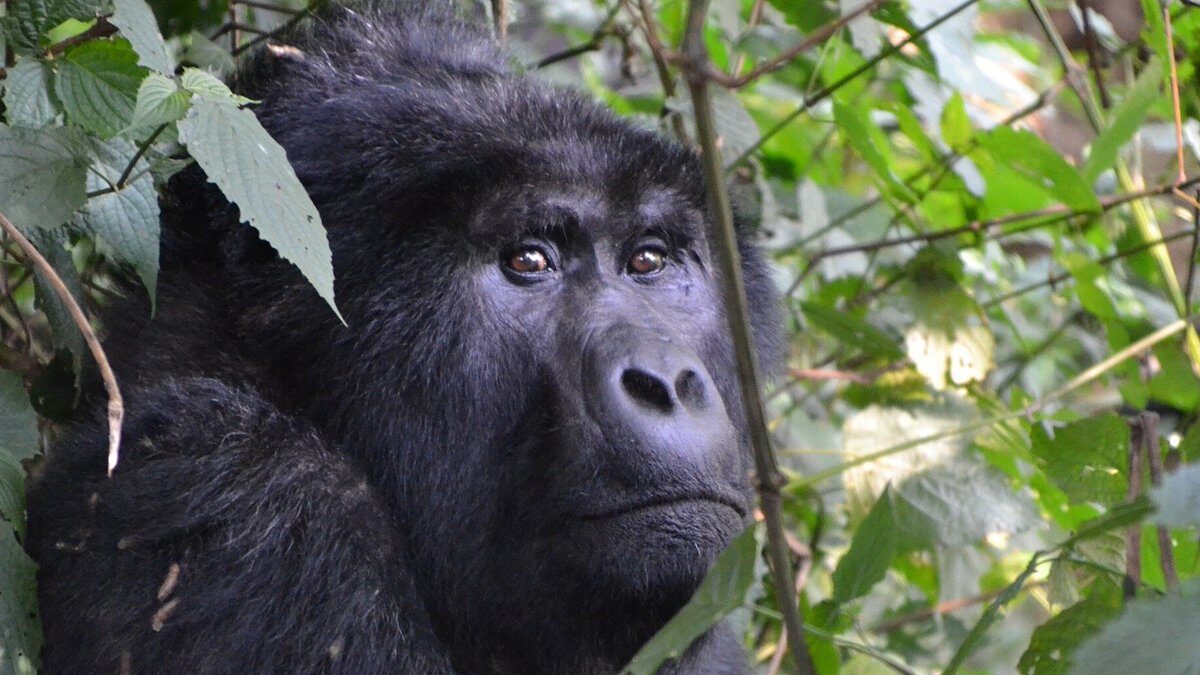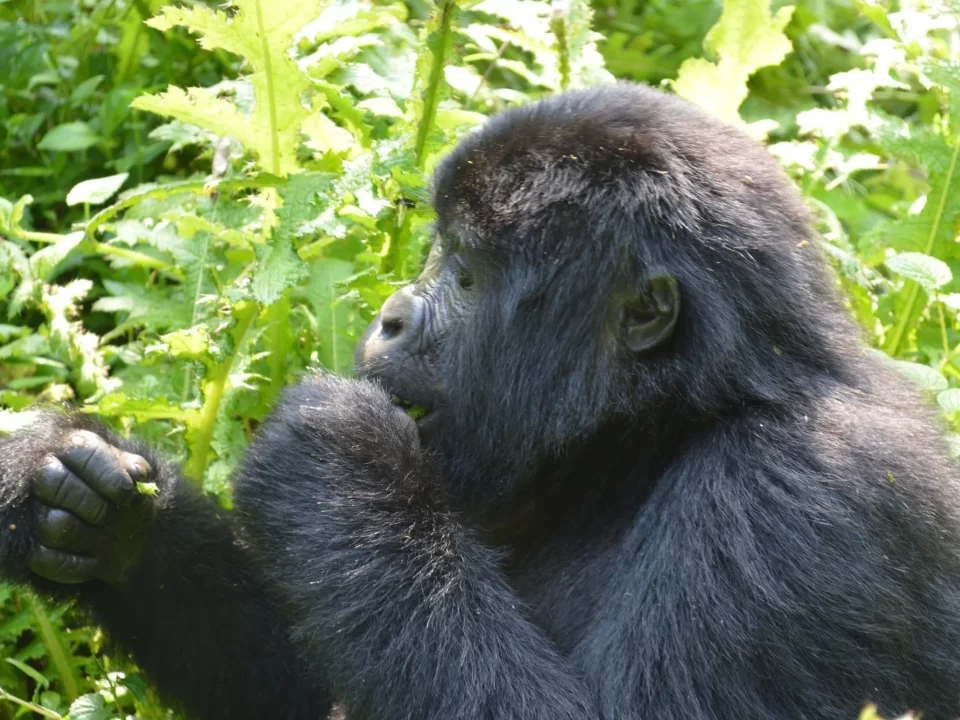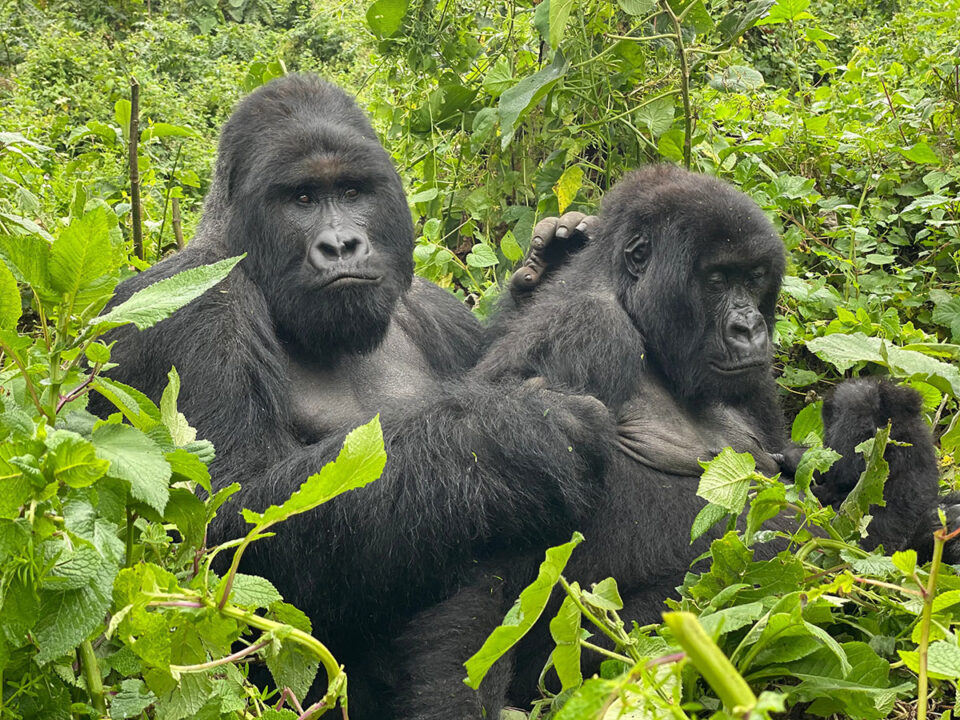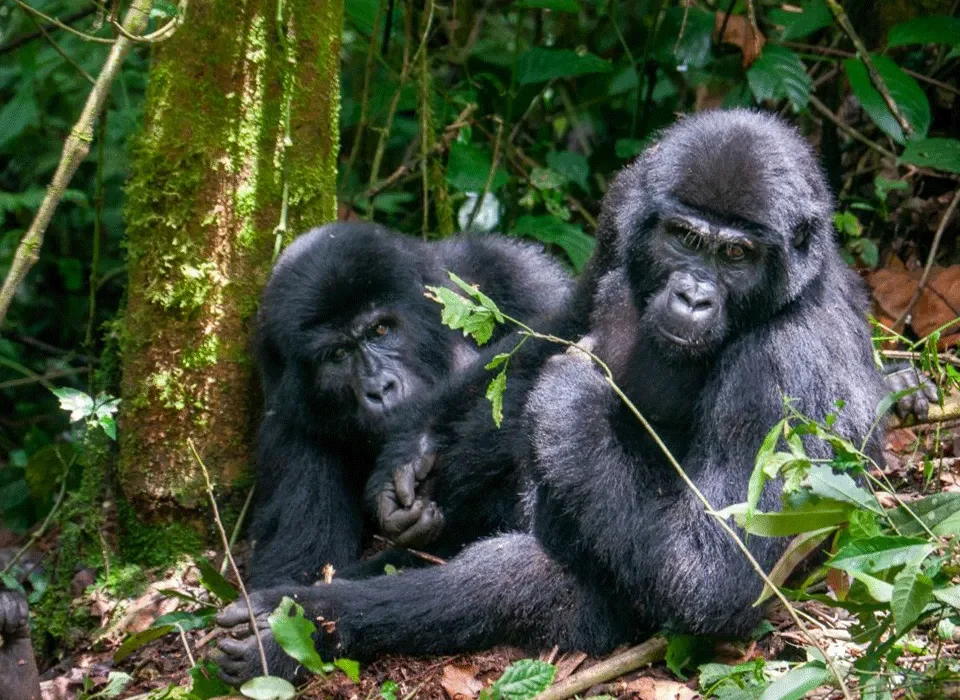Bwindi Four hours Gorilla Trek Experience

Why Trek Mountain Gorillas in Rushaga Sector?
February 2, 2024
Budget Flights to Bwindi Impenetrable National Park
February 2, 2024Immerse Yourself in the Extraordinary Bwindi Four-Hour Gorilla Trek Experience and Gorilla Habituation Adventure
Embark on a remarkable journey beyond the traditional Gorilla tracking adventure with the Bwindi Four-Hour Gorilla Trek Experience. Introduced by the Uganda Wildlife Authority in January 2014, this exclusive trek offers an extended period of four hours for a more immersive encounter with the semi-habituated Mountain Gorilla families in Bwindi Impenetrable Forest National Park. Unlike other Gorilla areas within the Virunga Conservation Area, including Mgahinga Gorilla National Park in Uganda, Volcanoes National Park in Rwanda, and Virunga National Park in the Democratic Republic of Congo, the four-hour Gorilla trek is a unique experience available only in Bwindi.
To participate in this extraordinary adventure, secure a Gorilla habituation permit through Trek Africa Expeditions or any registered tour operator. Alternatively, you can directly contact the Uganda Wildlife Authority’s reservations office via email to arrange your Gorilla safaris and permits.
The four-hour Gorilla trek experience is conducted throughout the year in Bwindi Forest, with permits available for booking. It is advisable to make early reservations due to the limited slots. A single Gorilla habituation permit is priced at USD1500 per person per trek, inclusive of park entry fees. Once your permit is secured, you are guaranteed to spend four hours with a semi-habituated Mountain Gorilla family, with the time starting from when you reach the fresh trails, sometimes leading to where they nested the previous night.
Currently, the Uganda Wildlife Authority is habituating two Gorilla families, namely Bikingi and Bushaho, located in the Rushaga Gorilla tourism sector in the southern part of Bwindi Impenetrable Forest National Park. Accessible by car, Rushaga is an 8-10 hours’ drive from Kampala city or a 4-hour drive from Queen Elizabeth National Park. For time-bound travelers, scheduled charter flights are available, but an overnight stay near Rushaga is recommended to prepare for the strenuous four-hour Gorilla trek experience, which commences early in the morning.
The number of trackers is limited to four people per family per day, ensuring an intimate experience as you trek and observe these semi-habituated Gorillas, including the time spent searching for them. Mountain Gorillas, though semi-habituated, remain wild and unpredictable, with their visibility contingent on their mood on a given day. However, the experienced researchers, guides, and trackers adhere to Gorilla behavior ethics, providing you with a memorable Gorilla habituation experience.
The trek begins with a briefing from the guides at the Rushaga Gorilla trailhead, followed by a hike led by rangers through the thick forest. Upon locating the Gorillas, you actively participate in the habituation process alongside researchers, guides, and trackers. You’ll spend time observing, photographing, and learning about Gorilla behavior as they adapt to human presence. Upon your return, you receive a Gorilla habituation experience certificate, capturing the essence of a lifetime memory.
This four-hour Gorilla trek in Bwindi Forest involves researchers, a small number of tourists, and trackers engaging in neutral actions that mimic Gorilla behaviors without threatening or reinforcing them. Such activities include chewing on vegetation, mimicking vocals, and walking on knuckles. This process occurs on a daily basis and can take up to three years or less, depending on how naturally Gorillas adjust to the presence of tourists, ultimately achieving full habituation for regular Gorilla trekking.
Beyond the extraordinary wildlife experience, Gorilla habituation contributes to the conservation of Mountain Gorillas and their threatened habitat. By generating funds for conservation and fostering the economic development of local communities around Bwindi Impenetrable Forest National Park, this initiative plays a crucial role in ensuring the survival of these endangered species.
Embark on this once-in-a-lifetime adventure, gaining a deep understanding of Gorilla social and ecological behavior while contributing to their conservation and the well-being of local communities.




